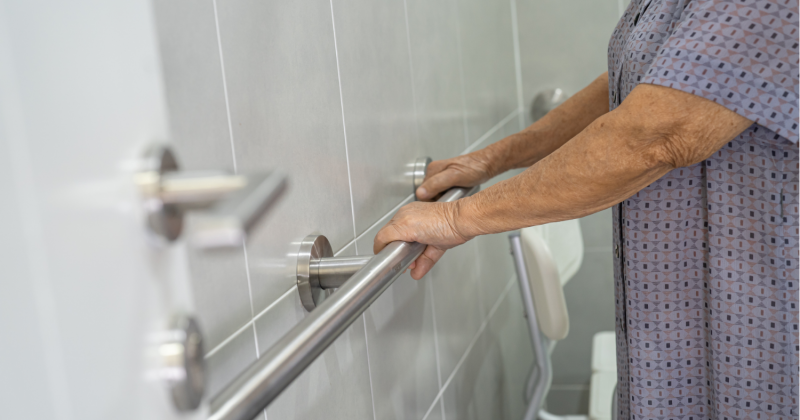How to Assist with Daily Activities Such as Bathing and Dressing: A Comprehensive Guide
iSavta | 28.01.2024

For many individuals, carrying out basic daily activities like bathing and dressing can become challenging due to various factors such as age, illness, or disability. In such cases, providing assistance in these activities is essential to ensure their well-being and maintain their independence. In this article, we will explore effective strategies and practical tips on how to assist with daily activities such as bathing and dressing.
Establish Trust and Communication
The foundation of successful assistance lies in establishing trust and maintaining effective communication with the person you are helping. Respect their privacy, dignity, and autonomy by involving them in decision-making. Maintain open and clear lines of communication to understand their needs, preferences, and any concerns they may have.
Create a Safe Environment
Before assisting with bathing or dressing, it is crucial to create a safe environment. Clear any clutter or obstacles that may hinder movement and ensure proper lighting. Install grab bars, non-slip mats, and handrails in bathrooms to enhance safety and stability. By creating a secure environment, you reduce the risk of accidents and instill confidence in the person you are assisting.
Provide Physical Support
When assisting with bathing, be mindful of the individual's comfort level and personal boundaries. Encourage their independence by allowing them to perform tasks they can manage, such as washing their face or brushing their teeth. Gradually provide physical support as needed, such as helping them enter and exit the shower or bath, adjusting water temperature, and handing them bathing supplies.
Adapt to Specific Needs
Each individual's needs may vary, so it is essential to adapt your assistance accordingly. For individuals with limited mobility, consider using assistive devices like shower chairs or bath benches to make bathing easier and safer. If dressing becomes challenging, provide clothing options that are easy to put on and remove, such as garments with Velcro or elastic fasteners. Additionally, assistive devices like long-handled reachers can help with reaching clothing items or personal hygiene products.
Respect Privacy and Modesty
Respecting privacy and modesty is crucial during assistance with bathing and dressing. Offer the person privacy by closing doors and using screens or curtains when necessary. Maintain a professional and compassionate demeanor to ensure their comfort and well-being throughout the process.
Maintain Hygiene and Skin Care
When assisting with bathing, pay special attention to hygiene and skin care. Ensure the person is clean, paying attention to areas that may be prone to skin breakdown or infection. Use gentle soaps and moisturizers to keep their skin healthy and hydrated. Encourage them to communicate any discomfort or changes in their skin condition so that appropriate measures can be taken.
Encourage Independence
While assisting with daily activities, it is crucial to encourage independence. Support the individual in developing and maintaining their skills whenever possible. Allow them to make choices, such as selecting their clothing or determining the order of tasks, to foster a sense of control and autonomy. Celebrate their achievements and provide positive reinforcement to boost their confidence.
Seek Professional Help if Needed
If you encounter difficulties or complex situations while assisting with bathing and dressing, do not hesitate to seek professional help. Occupational therapists, home healthcare providers, or healthcare professionals can offer guidance, training, and additional resources to enhance your caregiving skills and ensure the individual's well-being.
Conclusion
Assisting with daily activities like bathing and dressing requires a combination of empathy, communication, and adaptability. By establishing trust, creating a safe environment, and respecting the individual's privacy, you can provide effective support while maintaining their dignity and independence. Remember to adapt to specific needs, encourage independence, and seek professional assistance when necessary. With these strategies in mind, you can ensure a positive and empowering experience for both you and the person you are assisting, enhancing their quality of life and well-being.












